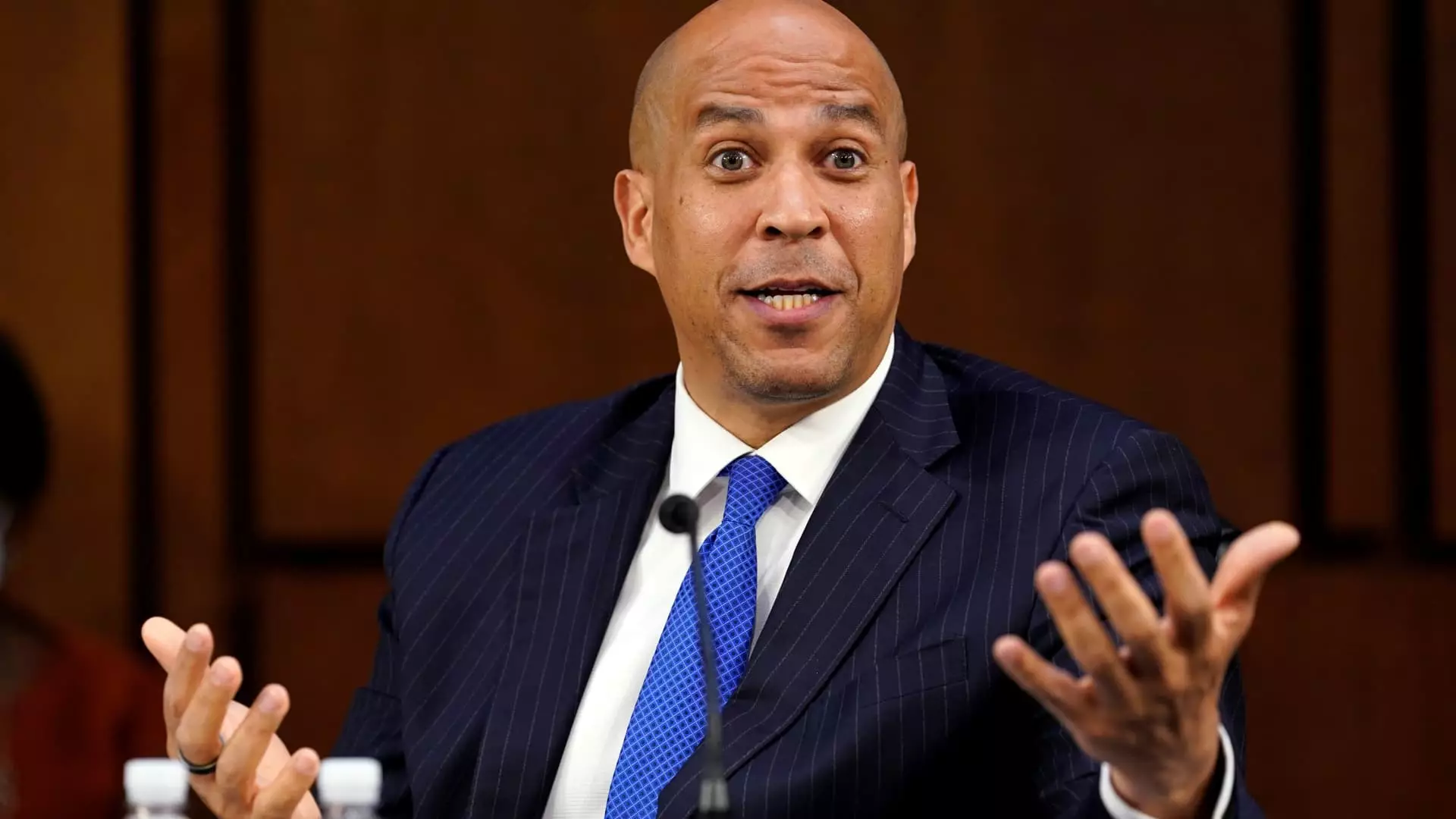In recent years, technology magnates like Elon Musk have taken on prominent roles in the political arena, often influencing public discourse and policy decisions. However, their involvement can lead to confusion and moral quandaries within political parties trying to maintain a coherent ideological stance. Senator Cory Booker recently highlighted this dilemma when he publicly declared that he would not accept campaign donations from Musk, despite urging the tech entrepreneur to engage more actively with the Democratic Party’s efforts against a controversial spending bill backed by the GOP. This situation encapsulates the tension inherent in the relationship between influential tech figures and the political landscape, revealing both opportunities and risks.
Musk has often projected himself as a disruptor, a role that appeals to many constituents seeking change. However, his unpredictable behavior, including personal spats with political figures, can muddy his intentions. By referring to a GOP-supported bill as a “disgusting abomination,” Musk appeared to align momentarily with Democrat ideals, a stance that could lure some progressive thinkers closer. Yet, as the same breath involved personal attacks on Trump, his consistent flamboyance could create skepticism among party stalwarts, who prefer a more unified front.
Disastrous Implications of Partisan Legislation
Booker’s perspective on the GOP-backed spending bill reflects a worrying sentiment that permeates American political discourse today. His description of the legislation as “disastrous for our long-term economy” reveals a fundamental belief among some liberals that the bill not only serves short-term political gains but also threatens the welfare of average Americans. With its tax cuts likely benefiting the wealthy and cutting essential services like Medicaid and food assistance, the bill raises alarms about its socio-economic ramifications. Booker’s insistence that average Americans must grasp the stakes underscores his larger narrative: political maneuvering often disregards the genuine needs of the populace.
Yet, amid this discourse, the question remains—should billionaires like Musk influence these legislative discussions? While they appear to have the resources and platform to ignite change, there’s an ethical dilemma in allowing private wealth to dictate public policy. Taking campaign funds from figures like Musk could compromise a party’s ideological integrity. Instead, it may be time for political leaders to focus on grassroots funding and messaging strategies that align with the values of their constituents.
The Complicated Dance of Engagement
Booker aspires for Musk to shift from passive engagement—simply sharing opinions on social media—to a more constructive role that leverages his influence to secure allies within Congress. This desire for Musk’s active participation in the Democratic front represents a strategic pivot that recognizes the complexity of coalition-building in today’s political landscape. For people like Booker, urging a transformation in Musk’s approach could be the first step toward uniting voices within the party against dangerous legislation.
Yet one should critically examine whether inviting Musk closer is genuinely beneficial. While it may offer short-term gains in advocacy, aligning with a figure known for behavior that can be unpredictable and inflammatory risks alienating core Democratic allies. Political leaders must tread carefully between harnessing influence and ensuring they do not lose their principles in the process.
The Weight of Political Consequences
The fallout from Musk’s potential decision to support Democratic initiatives in the face of GOP opposition raises the stakes in this already fraught political environment. When Trump proclaimed that Musk would face “serious consequences” for such support, it exemplified the high-risk nature of political alignments in contemporary America. Do we want to live in a society where one’s political allegiance is dictated by the whims of powerful individuals, possibly leading to further division and distrust within the party systems? As members of a deeply varied democracy, we must question the implications of merging tech mogul interests with public policy.
Instead, there’s a clearer call to action for politicians across the spectrum: embrace transparency and build alliances based on shared values rather than the allure of wealth and power. As such, political discourse must shift back towards being a battle of ideas, fostering community engagement and making citizen voices heard over those of individual billionaires, who wield disproportionate influence. Only then can we hope to construct a society that serves its people rather than its wallets.


Leave a Reply